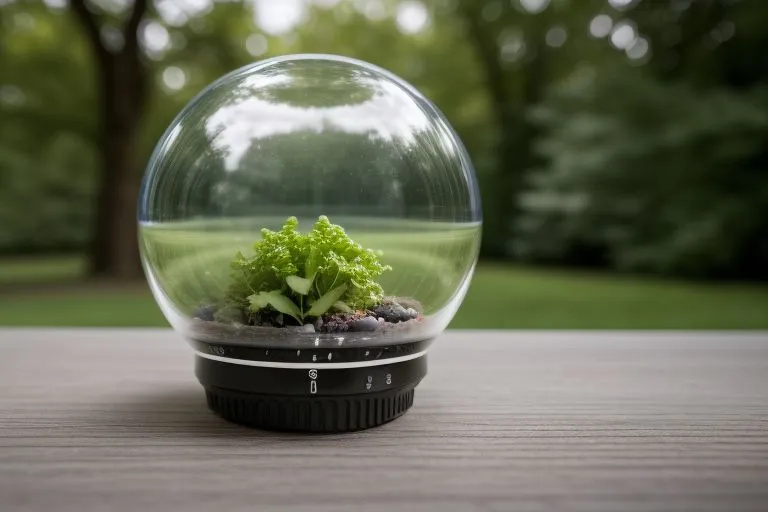
In today’s fast-paced world, many people are looking for ways to save money while also making a positive impact on the environment. Luckily, there are plenty of simple and effective strategies that can help you achieve both goals. By adopting eco-friendly practices, you can reduce your expenses and contribute to a healthier planet. This article will explore practical ways to save money and be kind to the Earth.
Understanding the Connection
Before we dive into the tips and strategies, it’s important to understand the connection between being eco-friendly and saving money. Many environmentally friendly choices, such as reducing waste and conserving energy, lead to cost savings. By minimizing resource consumption and making smarter choices, you can enjoy a more sustainable lifestyle that benefits your wallet and the planet.
Energy Conservation
One of the most effective ways to save money and reduce your carbon footprint is by conserving energy. Here are some easy steps you can take to cut down on energy consumption:
1. Use Energy-Efficient Appliances
- Upgrade to Energy Star Appliances: Energy Star-certified appliances use less energy and water than standard models. This can lead to significant savings on your utility bills. Consider replacing old appliances like refrigerators, dishwashers, and washing machines with energy-efficient versions.
- Unplug Electronics: Many electronics consume power even when they’re turned off, a phenomenon known as “phantom energy.” Unplug devices like chargers, televisions, and computers when they’re not in use, or use power strips to easily switch them off.
- Switch to LED Bulbs: LED light bulbs use up to 80% less energy than traditional incandescent bulbs and last much longer. Although they may cost a bit more upfront, they can significantly reduce your electricity bill over time.
2. Optimize Heating and Cooling
- Seal Leaks and Insulate: Proper insulation and sealing of leaks in your home can prevent heat from escaping in the winter and keep it out in the summer. This reduces the need for heating and cooling, resulting in lower energy bills.
- Adjust Thermostat Settings: Lower your thermostat by a few degrees in the winter and raise it in the summer. A programmable thermostat can automatically adjust the temperature based on your schedule, maximizing energy savings.
- Use Fans Wisely: Ceiling fans can help circulate air and make your home feel cooler, allowing you to set your air conditioner at a higher temperature. In the winter, reverse the fan direction to help distribute warm air.
Water Conservation
Conserving water not only helps protect this precious resource but also reduces your water bills. Here are some simple ways to use water more efficiently:
1. Fix Leaks
- Repair Dripping Faucets and Toilets: Leaks can waste a surprising amount of water over time. Check for leaks and repair them promptly to prevent unnecessary water usage.
- Install Low-Flow Fixtures: Low-flow faucets, showerheads, and toilets can reduce water usage without sacrificing performance. They are affordable and easy to install, making them a great way to save water and money.
2. Practice Smart Watering
- Water Wisely: Water your plants in the early morning or late afternoon to minimize evaporation. Use drip irrigation systems for efficient watering and consider collecting rainwater for your garden.
- Use Efficient Appliances: Upgrade to water-efficient appliances like dishwashers and washing machines, which use less water and energy to operate.
Reduce, Reuse, Recycle
Embracing the principles of reducing, reusing, and recycling can help you save money and reduce waste:
1. Reduce Waste
- Buy in Bulk: Purchasing items in bulk can save you money and reduce packaging waste. Look for products with minimal packaging or bring your own containers to refill at bulk stores.
- Avoid Single-Use Items: Replace disposable items like plastic bags, bottles, and utensils with reusable alternatives. Invest in a reusable water bottle, cloth shopping bags, and stainless steel straws.
2. Reuse and Repurpose
- Upcycle and Repurpose: Before throwing items away, consider how they can be repurposed or upcycled. Old jars can be used for storage, and worn-out clothing can become cleaning rags.
- Borrow and Share: Instead of buying items you’ll only use occasionally, consider borrowing or renting them. Share tools, equipment, and even books with friends and neighbors.
3. Recycle Responsibly
- Sort and Recycle: Separate your recyclables according to your local recycling guidelines. Recycling reduces the need for new materials and helps conserve resources.
- Compost Organic Waste: Composting food scraps and yard waste can reduce landfill waste and create nutrient-rich soil for your garden.
Sustainable Transportation
Transportation is a significant contributor to carbon emissions, but there are ways to reduce your environmental impact while saving money:
1. Use Public Transportation
- Take Public Transit: Public transportation is often more affordable and eco-friendly than driving a car. Consider using buses, trains, or subways for your daily commute.
2. Carpool and Ride-Share
- Share Rides: Carpooling with coworkers or using ride-sharing services can save you money on fuel and reduce the number of vehicles on the road.
3. Embrace Active Transportation
- Walk or Bike: Whenever possible, walk or bike instead of driving. Not only is this good for the environment, but it’s also a great way to stay active and healthy.
Mindful Consumption

Being mindful of your consumption habits can lead to significant savings and a smaller environmental footprint:
1. Buy Only What You Need
- Plan Your Purchases: Make a shopping list before heading to the store and stick to it. Avoid impulse buying and purchase only what you truly need.
- Choose Quality Over Quantity: Invest in high-quality, durable products that will last longer and reduce the need for frequent replacements.
2. Support Sustainable Brands
- Shop Responsibly: Choose brands and companies that prioritize sustainability and ethical practices. Support businesses that use eco-friendly materials and have transparent supply chains.
Eco-Friendly Food Choices
The food choices you make can have a significant impact on the environment and your wallet. Here are some tips for more sustainable eating habits:
1. Eat Less Meat
- Go Meatless: Reduce your meat consumption and opt for plant-based meals more often. Plant-based foods generally have a lower environmental impact and are often more affordable.
2. Buy Local and Seasonal
- Support Local Farmers: Purchase fruits and vegetables from local farmers’ markets to reduce the carbon footprint associated with transporting food long distances.
- Choose Seasonal Produce: Seasonal produce is often fresher, more affordable, and less resource-intensive to produce.
3. Minimize Food Waste
- Plan Meals and Use Leftovers: Plan your meals to minimize food waste and get creative with leftovers. Compost food scraps to reduce landfill waste.
Green Energy Alternatives
Switching to renewable energy sources can further reduce your environmental impact and save money in the long run:
1. Solar Power
- Invest in Solar Panels: Solar panels can significantly reduce your electricity bills and reliance on fossil fuels. Many governments offer incentives and rebates to make solar power more accessible.
2. Wind and Hydropower
- Explore Other Renewable Options: Depending on your location, wind and hydropower may be viable alternatives for reducing your carbon footprint.
The Benefits of an Eco-Friendly Lifestyle
Embracing an eco-friendly lifestyle isn’t just about saving money; it also comes with a range of additional benefits:
- Improved Health: Many eco-friendly practices, such as walking or biking instead of driving and eating more plant-based meals, contribute to a healthier lifestyle.
- Reduced Carbon Footprint: By making conscious choices, you can significantly reduce your carbon footprint and contribute to a cleaner, healthier planet.
- Increased Awareness: Living sustainably encourages you to be more mindful of your consumption habits and fosters a deeper connection to the environment.
- Community Impact: By adopting eco-friendly practices, you can inspire others in your community to do the same, creating a ripple effect that amplifies your positive impact.
